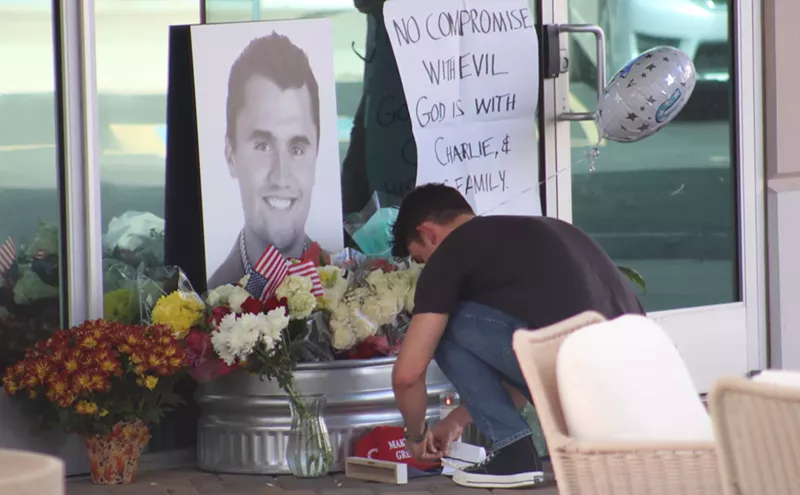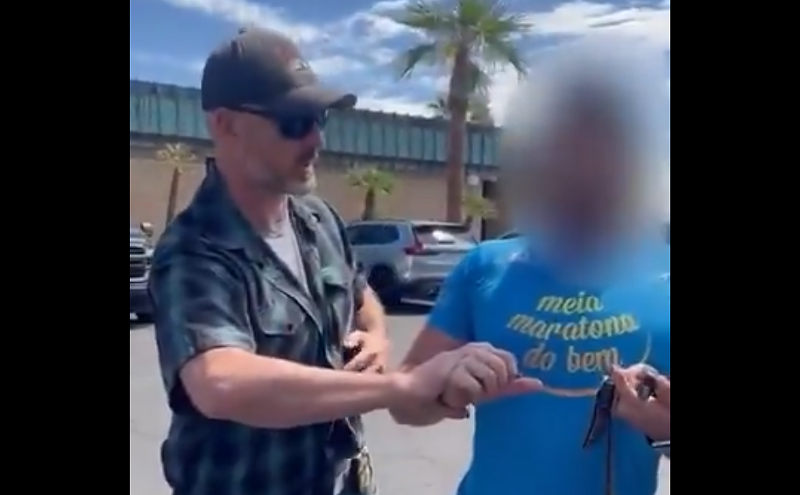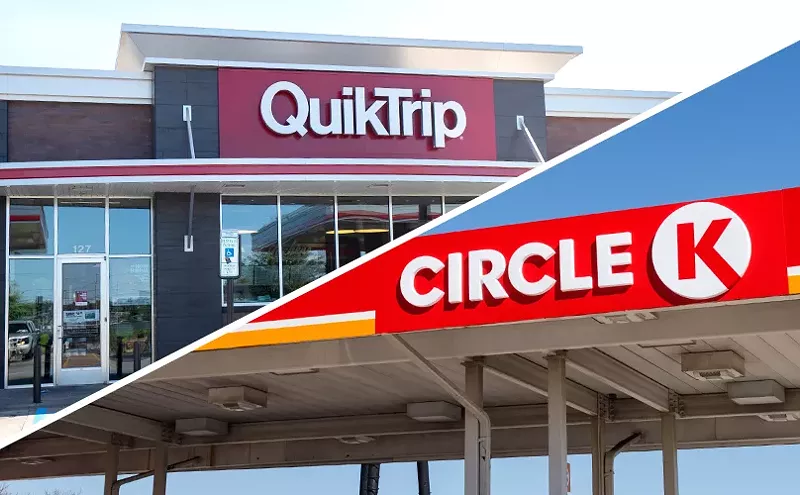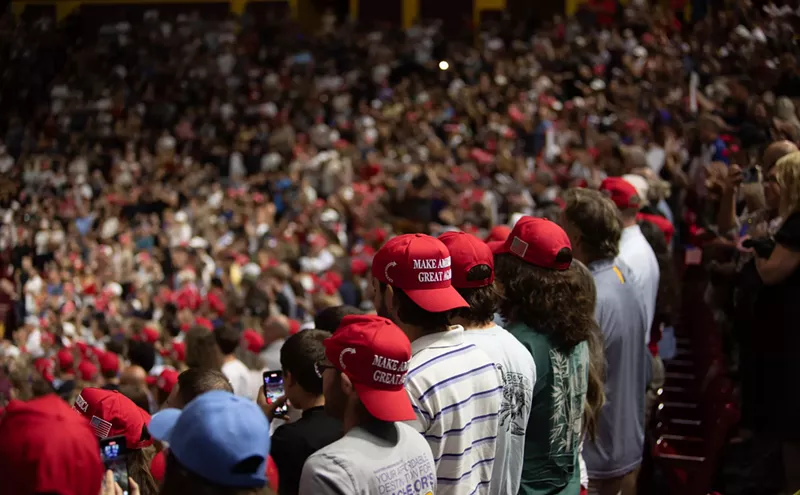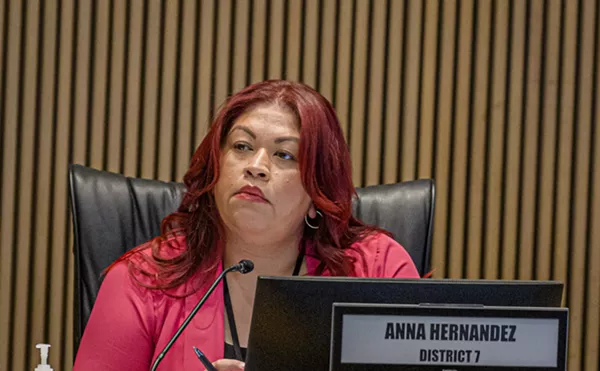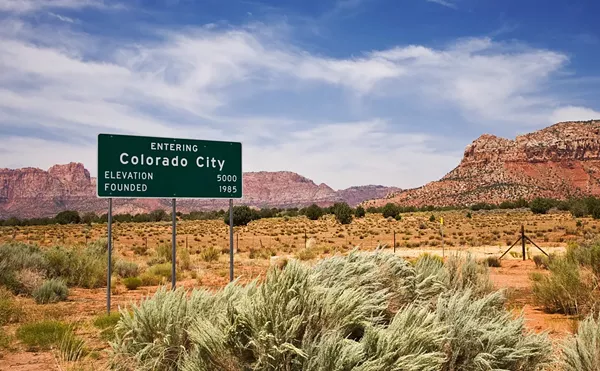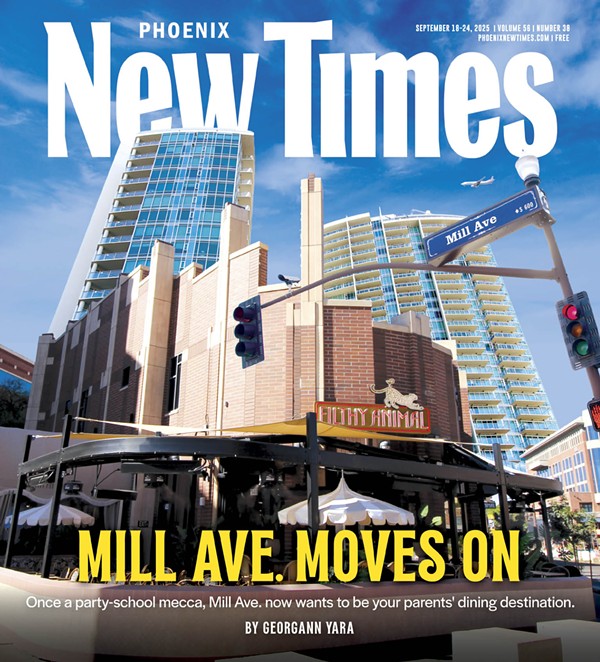ATL Incorporated, which is owned by Wilcox's brother-in-law Frank Rivera, won at least four subcontracts from primary contractors worth at least $500,000 during construction of the $370 million ballpark.
Wilcox voted to approve the primary contracts knowing Rivera was under consideration to win the subcontracts, records show. Wilcox also continued to vote on amendments and change orders requested by primary contractors from 1995 through this year after ATL had been awarded subcontracts, Maricopa County Stadium District records reveal.
In addition, Wilcox continued to vote on Bank One Ballpark contracts affecting Rivera even after she filed a letter in February 1999 with county officials disclosing her conflict of interest over Rivera's contracts.
Arizona statutes say that a county "supervisor shall not vote upon any measure in which he, any member of his family or his partner, is pecuniary interested."
Maricopa County assistant county attorney Paul Golab, who monitors the Maricopa County Stadium District which owns Bank One Ballpark, declined to comment on Wilcox's relationship with Rivera.
But an adviser to several former county supervisors says Wilcox violated state statute by voting on the contracts knowing that her brother-in-law stood to benefit.
"If any of the proceeds can go to him, then it would be a conflict," says the former adviser who asked not to be identified.
Wilcox strongly denies any wrongdoing, although she acknowledged she knew Rivera was a subcontractor on the ballpark.
"We approved the general contractors but I never had anything to do with his contract," Wilcox says.
Wilcox says she never votes on anything if "Frank's name is involved in it."
"I'm very careful and I have abstained in voting a few times because Frank's name was involved. I know state law. I've been an elected official for a number of years and I've always abstained," she says.
But records reviewed by New Times show Wilcox repeatedly voted for contracts that directly benefited ATL's business at the ballpark. New Times found no records showing Wilcox abstained from stadium district matters because of Rivera's involvement.
ATL played a crucial role in the construction of the stadium. The company was responsible for conducting quality control inspections for cement and steel erection. The quality of those inspections was criticized by the Arizona Diamondbacks after serious safety concerns were raised earlier this year over the assembly of more than 80 steel trusses that support thousands of seats ("Loose Screws," John Dougherty, December 14).
While sitting as a member of the Maricopa County Stadium District board of directors, Wilcox voted in May 1995 to award a $6.4 million contract to Huber, Hunt & Nichols to be the ballpark construction manager. In that time period, records indicate, Wilcox received ballpark construction documents stating that ATL was seeking to win contracts to provide testing and inspection services for the ballpark.
Wilcox made the motion to award the contract to HH&N. Later that year, ATL was awarded a subcontract by HH&N worth approximately $240,000.
Once ATL was under contract with HH&N, Wilcox voted to significantly increase the value of HH&N's contract. On October 2, 1996, Wilcox voted during a stadium district board of directors meeting to increase HH&N's contract by $3.5 million to provide additional services. Among those services was additional "testing and inspection" -- work that appears to have been provided by ATL, stadium district minutes show.
The increase in HH&N's contract directly benefited ATL, which subsequently billed HH&N for inspections for painting, concrete pouring and steel assembly. Records show ATL billed HH&N $176,797 in April 1998 for "retesting or reinspecting various work components."
ATL also won subcontracts in early 1995 from Cella Barr, the prime utility relocation contractor, and from Agra Earth & Environmental Inc., the prime geotechnical consultant, county records indicate. The contract with Agra Earth was worth approximately $6,120. The Cella Barr contract was worth approximately $45,360.
ATL was also awarded a subcontract from Perini/Tutor Saliba worth at least $95,700, county records show.
Rivera did not return repeated phone calls to his ATL office seeking comment.
While Wilcox says she did nothing wrong by repeatedly voting on the prime contracts for the ballpark when her brother-in-law was involved as a subcontractor, she's apparently concerned about conflicts involving Rivera's potential involvement in another county project -- the construction of new jails.
In February 1999, Wilcox disclosed her conflict of interest with Rivera in a letter to the clerk of the Board of Supervisors, Fran McCarroll. The letter, however, never mentions Rivera's role in Bank One Ballpark, and focuses instead on the county's current plans to build new jails.
"The conflict arises in that a relative, my brother-in-law, Frank Rivera, has a substantial interest in a business that participates in bidding on public works projects," Wilcox states in her letter. "The business, ATL, Inc., is a construction materials testing laboratory."
Rivera is seeking a subcontract from the primary contractor for construction of the county's new jail -- a scenario identical to ATL's subcontracts at Bank One Ballpark.
"Consequently, I hereby disclose a conflict of interest and I will refrain from voting or otherwise participating in any manner as a county officer in any decision concerning any contract involving ATL, Inc.," Wilcox's letter concludes.
The supervisor, who was reelected last month to her third four-year term, did not return a phone call seeking comment on the letter.
Wilcox has long been a strong supporter of the ballpark.
She voted in favor of the countywide sales tax to raise $238 million for the project. The tax was approved by supervisors in February 1994 by a 3-1 vote. The quarter-cent sales tax has since expired, but the tax created widespread resentment. Two of the supervisors who voted in favor of the tax -- Jim Bruner and Ed King -- lost subsequent elections. A tax protester shot Wilcox in the butt in August 1997 at the conclusion of a supervisors meeting.
Wilcox was a strong proponent of minority contractors participating in the construction of the ballpark. Less than a week after the sales tax was approved, Wilcox announced the formation of a citizen's committee to monitor minority participation in the ballpark's construction and operation. She appointed her husband, Earl, as one of the eight members of the advisory group.
County records show Wilcox kept close tabs on the hiring of minority construction companies for the project. In June 1995, then-stadium district director Bob Williams sent Wilcox a memo outlining efforts to help minority businesses -- including ATL -- to achieve suitable bonding necessary to win subcontracts for the stadium.
Wilcox's office was routinely updated on the number of minority- and women-owned businesses that had received contracts at the ballpark and she occasionally wrote letters to prime contractors encouraging them to hire such businesses, county records show.
In June 1995, the county supervisors voted to exempt ballpark contractors from meeting the county's minority- and women-owned business requirements. The exemption was approved because supervisors feared lawsuits over subcontracts could delay completion of the ballpark that was scheduled to open in March 1998.
During the supervisors debate, Rivera made an appearance before the panel as a representative from the National Association of Minority Contractors. He told the supervisors, including his sister-in-law, that without the program, minority participation in the ballpark project would be nonexistent.
Wilcox fought hard to keep the program included, but her motion was rejected by fellow supervisors on a 3-2 vote. Women and minority participation in ballpark construction plummeted after the vote.
Rivera's company, however, maintained contracts throughout the life of the project, records show.
Minority contracting at Bank One Ballpark became a flash point in Wilcox's 1996 reelection campaign during a bitterly contested primary against Democratic challenger Tommy Espinoza.
In a 1996 New Times story, Wilcox claimed that prominent lobbyist and former state legislator Alfredo Gutierrez had convinced HH&N in 1994 to hire him to recruit other minority subcontractors.
Wilcox said she told HH&N she had put together an advisory committee to do just that at no cost. So, according to Wilcox, HH&N dropped Gutierrez. (Gutierrez stated in the 1996 story that he withdrew from the proposal because he perceived it was a conflict of interest because he had supported the ballpark.)
Wilcox estimated in 1996 that the loss of the contract cost Gutierrez as much as $250,000, an amount Gutierrez said was vastly overstated. Nevertheless, when Espinoza announced his intention to run for Wilcox's seat on the Board of Supervisors, Wilcox interpreted it as payback from Gutierrez.
Wilcox called Gutierrez's bid for the minority contracting job a "slimy deal."



